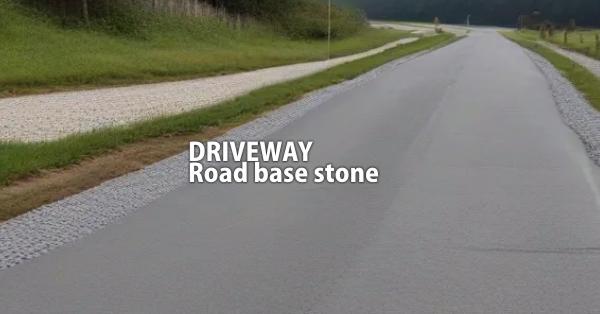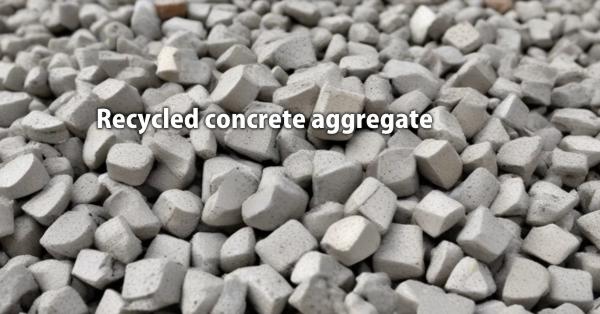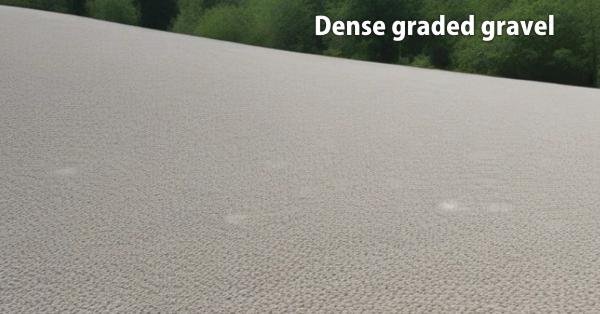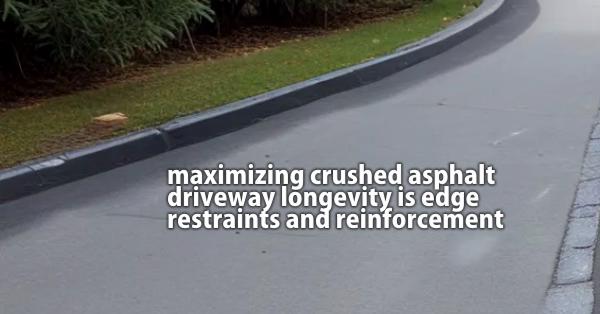Did you know the lifespan of a well-designed and constructed asphalt driveway is about 20-30 years? The key to its longevity, though, is routine and proper maintenance. Regular care of your asphalt pavement will extend its lifespan and improve appeal for your residential, commercial, or industrial property.
To truly maximize the lifespan of your crushed asphalt driveway, there are several key tips that have been proven effective through experience. First and foremost, it’s crucial to install a proper base layer underneath the asphalt, using high-quality crushed aggregate compacted to the recommended density. This stable foundation prevents cracking and shifting over time.
Once installed, the most important tip is to seal coat the entire driveway surface every 2-3 years with a refined sealer designed specifically for asphalt. This forms a protective barrier against damaging elements like UV rays, precipitation, and chemicals that can cause premature aging. Be sure to thoroughly clean and repair any cracks before sealing.
Prudent drainage management is another proven way to prolong your driveway’s life. Ensure the pitch is angled slightly away from buildings, with drainage systems installed at the lowest points. Allowing water to pool accelerates the deterioration of the asphalt.
To combat cracking, make timely crack repairs with a rubberized filler suitable for asphalt. Larger or recurring cracks may require professional patching. Avoid heavy vehicle traffic when possible, as excessive weight contributes to cracking.
Finally, schedule regular cleaning and promptly remove any gas, oil, or chemical spills and vegetation growth. With these proven maintenance practices, you can maximize the usable longevity of your crushed asphalt driveway for years to come.
With over 25 years of experience as a licensed civil engineer specializing in asphalt materials and pavement design, I often get asked how to maximize the longevity of crushed asphalt driveways. Several important construction and maintenance practices go into achieving a durable, long-lasting recycled asphalt driveway. Based on my engineering expertise, I recommend focusing on proper base preparation, drainage, edge restraints, seal coating, and routine care for optimal crushed asphalt driveway lifespan.
Importance of Proper Base Layer Construction
As a pavement engineer, I always emphasize the critical need for a structurally sound base under crushed asphalt driveways. The stable support provided by the base layer is key to preventing premature failure from vehicle loads and ground movement stresses over many years.
For best results, I advise excavating down to undisturbed native soil and then building up the base in compacted layers using aggregate materials such as:
Road base stone crushed driveway

Recycled concrete aggregate

Dense graded gravel

The compacted base layer should be 6-12 inches thick depending on soil conditions. Proper compaction of 95% Standard Proctor Density ensures stability. Geotextile fabric may be needed over very soft soils before base placement.
The substantial, well-drained base provides the necessary foundation to maximize the lifespan of the crushed asphalt surface layer. Any deficiencies in base preparation can lead to cracked, settled, or rutted driveways much sooner.
Optimizing Drainage and Pitch
In my civil engineering practice, I always stress the importance of efficient drainage design for outdoor pavements. Crushed asphalt driveway longevity is highly dependent on mitigating water accumulation. Optimizing drainage and pitch helps preserve the structural integrity and avoids weathering damage over many years.
The best practices I recommend for drainage include:
- A 3-5% slope or crown along the driveway length
- Layered base reservoir designed to store and disperse water
- Perimeter drainage swales and trenches to divert runoff
- Subsurface French drains to collect water for ground infiltration
- Avoiding compaction of native soil under the base to improve permeability
With proper drainage and pitch incorporated, seasonal freezing, thawing and heavy rain will have minimal impact on the crushed asphalt surface. This extends the lifespan by decades and protects the driveway investment.
Edge Restraints and Reinforcement
Another consideration I discuss with clients regarding maximizing crushed asphalt driveway longevity is edge restraints and reinforcement. Over many years, erosion at the driveway edges or cracks through the surface can degrade durability if left unaddressed.

To prevent edge erosion, I recommend installing landscape borders, concrete curbing, timbers or other sturdy edging materials. They contain crushed asphalt pavement layers for better stability and performance.
For added internal reinforcement, geotextile fabric, geogrid, fiber mesh or rebar can be incorporated, especially for steep driveways or heavy vehicle loads. This augments the structural integrity to extend the service life span.
Asphalt Tonnage to Square Yards Calculator Reverse Tons to Sq Yards
Importance of Sealcoating Crushed Asphalt Driveway
Seal coating can maximize crushed asphalt driveway lifespans. The asphalt binder in recycled asphalt pavement remains susceptible to oxidation and weathering over time.
Applying an asphalt-based or acrylic seal coat every 2-4 years provides vital protection:
- Shields against oxidation, UV rays, and water damage
- Reduces surface raveling and aggregate loss
- Restores black coloration
- Fills hairline cracks and surface voids
- Provides fresh skid resistance
Sealcoating is a critical preservation measure to ensure crushed asphalt driveways maintain integrity and function for up to 20+ years. The small periodic cost has a very large payoff.
Effective Repair Techniques for Crushed Asphalt Driveway
For driveways that see many years of use, some repair work will inevitably be required at times. Depending on the age and extent of wear, different repair techniques can restore the integrity and prolong the lifespan further:
Localized patches
Excavate and replace small distressed areas or fill potholes and raveled sections with fresh hot or cold asphalt mix.
Overlay
Install a new 1-2 inch overlay of crushed asphalt over the existing driveway to bolster structural capacity.
Rejuvenators
Penetrating asphalt rejuvenators help revitalize oxidized or dried-out surface layers.
Reconstruction
For severely degraded driveways, complete removal and reconstruction may be required. The old crushed asphalt can be recycled back into the new pavement.
Crack repairs
Fill or seal dormant cracks to prevent deterioration and water infiltration into the subgrade.
With diligent maintenance and smart repair strategies, crushed asphalt driveways can deliver many additional years of reliable service and savings compared to repaving.
Seasonal Maintenance Tips For Crushed Asphalt Driveway
In addition to seal coating and repairs, there are some simple seasonal maintenance steps I recommend to preserve crushed asphalt driveways:
Spring
- Sweep up winter sand and debris to reveal the pavement surface.
- Check for cracks or deterioration from freeze-thaw stress.
- Patch any potholes or eroded areas.
- Reseal joints and cracks as needed.
Summer
- Maintain proper drainage to avoid pooled water in hot weather.
- Trim back encroaching vegetation blocking drains or joints.
- Clean any oil drips or grease that could stain the surface.
Fall
- Clear leaves and organic debris to prevent clogging of drainage.
- Check surface grade and restore proper slope or crown if needed.
- Sealcoat before winter if over 2 years old.
Winter
- Plow or shovel carefully to avoid scraping off aggregates.
- Spread sand for traction but sweep away in spring before it clogs the pavement.
- Repair any damage like abrasion or potholes after the snow clears.
Staying on top of these basic seasonal maintenance practices will keep a crushed asphalt driveway looking and performing its best year after year. The small yearly time investment helps maximize longevity and minimizes life cycle costs.
- Key Takeaways
- Regular cleaning and crack filling are essential for asphalt driveway maintenance.
- Address drainage issues and apply seal coating to protect your driveway from the elements.
- Timely repairs and professional interventions can save you from costly damages and replacements.
Asphalt Failure Types Guide to Pavement Defects and Failures You Should Know!
Verified Advice
In summary, proper base construction, drainage, edge restraints, seal coating, and repair techniques coupled with diligent maintenance make achieving over 25 years of reliable service feasible for crushed asphalt driveways. As a professional civil engineer, I hope these best practice recommendations guide maximizing the lifespan of a durable, cost-effective recycled asphalt driveway. Please feel free to reach out with any other questions!
Authority Answers
What is a crushed asphalt driveway In USA?
A crushed asphalt driveway in united states, also known as a recycled asphalt driveway, is a cost-effective and eco-friendly alternative to traditional paved driveways. It is constructed by compacting a mixture of recycled asphalt pavement (RAP) and crushed stone, creating a durable and low-maintenance surface.
Why should I choose a crushed asphalt driveway?
Choosing a crushed asphalt driveway offers several benefits, including lower installation costs compared to traditional asphalt or concrete driveways, a permeable surface that allows better drainage, and a more environmentally friendly option by repurposing recycled materials.
How do I prepare the base for a crushed asphalt driveway?
Proper base preparation is crucial for the longevity of your crushed asphalt driveway.
Begin by excavating and removing any existing vegetation or debris. Then, compact the subgrade soil and install a gravel base layer of appropriate depth, typically 4 to 6 inches, to provide a stable foundation.
What is the recommended thickness for a crushed asphalt driveway?
The recommended thickness for a crushed asphalt driveway varies depending on the anticipated traffic and weight loads. For residential driveways with light vehicle traffic, a thickness of 3 to 4 inches is generally sufficient. However, for heavier loads or commercial applications, a thicker base of 6 to 8 inches may be necessary.
How do I maintain a crushed asphalt driveway?
Regular maintenance is essential for maximizing the lifespan of your crushed asphalt driveway. This includes filling any potholes or low spots with additional crushed asphalt, regrading the surface to maintain proper drainage, and adding a fresh layer of crushed asphalt every few years to replenish the surface.
Can I seal a crushed asphalt driveway?
Sealing a crushed asphalt driveway is not recommended, as the permeable nature of the surface allows for proper drainage and prevents water accumulation. Sealing can trap moisture within the driveway, potentially leading to premature deterioration.
How do I prevent weed growth on a crushed asphalt driveway?
Preventing weed growth is crucial for maintaining the integrity of your crushed asphalt driveway. Apply a weed barrier fabric underneath the crushed asphalt layer during installation, and consider using a herbicide or manually removing any weeds that manage to sprout through the surface.
How do I repair potholes or low spots in a crushed asphalt driveway?
Addressing potholes and low spots promptly is essential to prevent further deterioration. First, remove any loose or damaged material from the affected area. Then, compact the underlying base and fill the hole or low spot with fresh crushed asphalt, compacting it in layers until level with the surrounding surface.
How long does a crushed asphalt driveway typically last?
With proper installation and regular maintenance, a crushed asphalt driveway can last between 10 and 20 years. However, the lifespan can vary depending on factors such as climate, usage, and the quality of the materials used.
Can I use crushed asphalt for other outdoor surfaces?
Yes, crushed asphalt can be used for various outdoor surfaces beyond driveways, including walkways, patios, and even some low-traffic areas in parks or recreational facilities. Its permeability and durability make it a versatile material for various landscaping projects.
How do I prevent erosion on a crushed asphalt driveway?
Proper drainage and erosion control measures are essential for preventing erosion on your crushed asphalt driveway. Ensure that the driveway is graded to direct water away from the surface, and consider installing drainage channels or swales along the sides to capture and divert runoff.
Can I plow or shovel a crushed asphalt driveway in winter?
Yes, you can plow or shovel a crushed asphalt driveway during winter months. However, it’s important to exercise caution and use plastic or rubber-edged shovels or plow blades to avoid dislodging or damaging the surface material.
How do I remove oil or grease stains from a crushed asphalt driveway?
Removing oil or grease stains from a crushed asphalt driveway requires prompt action. First, apply an absorbent material like kitty litter or sawdust to the stain to soak up as much of the spill as possible. Then, use a degreaser or detergent solution and scrub the area thoroughly before rinsing it with water.
Can I install a crushed asphalt driveway myself?
While it is possible to install a crushed asphalt driveway as a DIY project, it can be physically demanding and requires precise grading and compaction. For best results and longevity, it’s recommended to hire a professional contractor with experience in installing crushed asphalt surfaces.
What are the maintenance costs associated with a crushed asphalt driveway?
The maintenance costs for a crushed asphalt driveway are generally lower than for traditional paved surfaces. Regular maintenance tasks like regrading, filling low spots, and adding a fresh layer of crushed asphalt can be done relatively inexpensively, especially if undertaken as DIY projects.
How do I prevent dust issues with a crushed asphalt driveway?
To prevent dust issues with a crushed asphalt driveway, consider applying a dust control product or soil stabilizer, which helps bind the surface material together and reduces the amount of airborne particles.
Can I use crushed asphalt for a driveway on a steep slope?
While crushed asphalt can be used on some slopes, it’s generally not recommended for driveways with steep inclines or grades exceeding 10%. The loose nature of the material can make it prone to erosion and instability on steeper slopes.
How do I ensure proper drainage on a crushed asphalt driveway?
Ensuring proper drainage is crucial for the longevity of your crushed asphalt driveway. Grade the surface to create a slight slope away from structures, and consider installing drainage channels or French drains along the edges to capture and divert water runoff.
Can I add color or patterns to a crushed asphalt driveway?
While crushed asphalt driveways are typically a uniform gray color, it is possible to add color or patterns by incorporating colored aggregates or stamping techniques during installation. However, this may increase the overall cost and complexity of the project.
